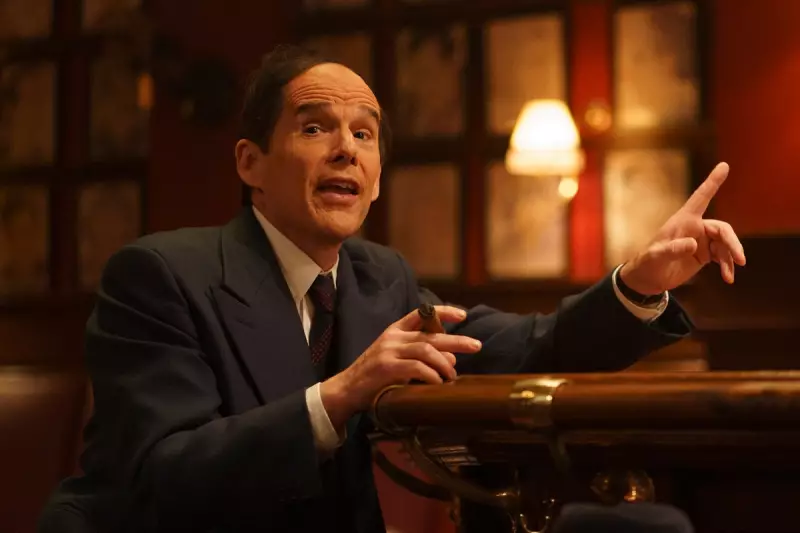
Renowned American filmmaker Richard Linklater ventures into new territory with his latest cinematic offering, Blue Moon, though the result proves to be one of his more modest achievements. The film, which marks Linklater's twenty-second directorial effort, features a standout performance from Ethan Hawke as the legendary Broadway lyricist Lorenz Hart, yet struggles to escape its stagey constraints.
Opening in cinemas on Friday 28th November 2025, Blue Moon transports audiences to the vibrant but brittle world of 1940s Broadway, though the storytelling itself becomes increasingly claustrophobic as the narrative unfolds.
A Brilliant but Troubled Artist
Ethan Hawke embodies Lorenz Hart, the brilliant mind behind timeless classics like "Blue Moon" and "My Funny Valentine". The film introduces us to Hart in 1943, well past his prime, as he collapses in a rain-drenched New York alleyway. At just forty-seven years old, he appears washed up and nearing the end of his life.
The story then rewinds seven months to the premiere of Rodgers and Hammerstein's groundbreaking musical Oklahoma!, a production that would revolutionise musical theatre. Hart sits in the audience but makes a quiet exit, retreating to his favourite haunt, Sardi's bar. Here, he cuts a pitiable figure—effortlessly witty in conversation with the friendly barman, played by Bobby Cannavale, yet radiating profound sadness with every joke he cracks.
Hart emerges as a complex character—a bisexual alcoholic who romanticises his condition as being "drunk on beauty," yet seethes with professional and romantic frustration. His latest infatuation centres on the beautiful young Elizabeth, portrayed by Margaret Qualley, an aspiring Broadway writer. However, Hart's advanced age and world-weary appearance make him an unlikely match for her affections.
Hawke's Transformative Performance
This collaboration marks another chapter in Hawke's long-standing creative partnership with Linklater, having previously worked together on the Before trilogy and the Oscar-winning Boyhood. However, Hawke has never undertaken a role quite like this for the director before.
Through clever camera techniques and visual effects, several inches have been subtracted from Hawke's usual height, rendering him the smallest man in any room. His hair appears thinning, concealed by a desperate comb-over, while his skin shows the wrinkles of a hard-lived life. Hart's temperament swings wildly from sweet-natured to bitterly acerbic in moments, a man consumed by self-pity as he watches former protégés like the dynamic Richard Rodgers, played with dash by Andrew Scott, surpass him in success.
Despite the character's often frustrating nature, Hawke's skilled performance ensures audiences remain invested in Hart's tragic journey, finding humanity beneath the self-destructive behaviour.
The Claustrophobic Broadway Milieu
Linklater expertly recreates the elegant but brittle world of 1940s Broadway, complete with its sharp wit and sophisticated atmosphere. The film boasts clever dialogue filled with witty references to everything from Frank Sinatra to Stuart Little, showcasing the director's attention to period detail.
Margaret Qualley delivers the film's most memorable monologue, recounting a lengthy tragicomic tale about a sexual misadventure with a young jock. Her character, Elizabeth, represents both Hart's romantic aspirations and professional frustrations—while he's besotted with her, she views him merely as a confidant and career stepping stone, not a potential lover.
The mood often leans closer to Eugene O'Neill's cautionary tales about destructive alcoholics than the effervescent world of Broadway musicals. As Hart shares stories with New Yorker writer EB White, played by Patrick Kennedy, or chats about his admiration for Casablanca with the barman, the parallels become clear—Hart is no Bogart, and Elizabeth refuses to be his Ingrid Bergman.
Despite the strong performances and atmospheric setting, the film's primary weakness emerges as the narrative progresses. The longer we remain confined to the bar with Hart, the more stifling and dispiriting the storytelling becomes, never quite breaking free from its stagey origins.
Blue Moon stands as an interesting but flawed addition to Linklater's distinguished filmography, elevated by committed performances but ultimately constrained by its own theatrical nature. The film carries a 15 certificate and runs for 100 minutes.





